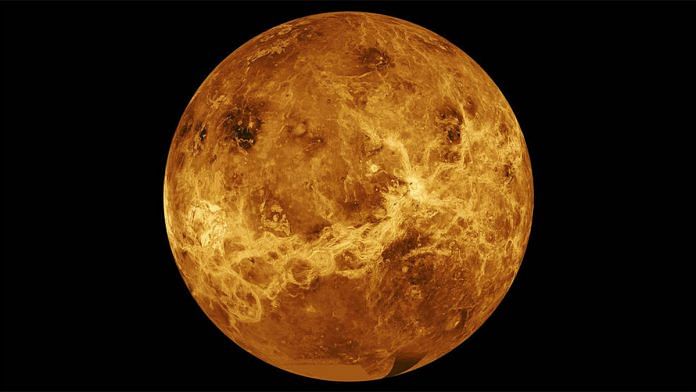Bengaluru: The clouds of the planet Venus have been a prime candidate for hospitable and favourable conditions for microbial life, and many future missions to the planet are expected to study this part of the atmosphere too.
However, a new analysis of the water content in the planetary clouds, from data gathered by space probes, reveals that the amount of humidity and moisture in Venusian clouds is extremely low. Comparing these with conditions under which extremophiles (organisms that thrive in unlikely places under extreme conditions) exist on our planet, scientists have decided that Venus’s clouds are too dry for even known extremophile life forms.
The study, published in the journal Nature Astronomy, comes just as new missions to the planet are being evaluated and announced, including two new ones from NASA that will explore the geological and climatic evolution of Venus, an ESA mission that will also study the same as well as a private mission by the company Rocket Lab.
Last year, a group of astronomers discovered the gas phosphine in the Venusian atmosphere. The discovery was met with some scepticism but mainly excitement by the astrobiology community. Phosphine cannot be produced naturally on the planet; on Earth, it’s produced either by life or in factories.
Before these results, and more so after them, many speculated that the dark streaks visible in Venusian clouds could potentially be colonies of microbes that die and regrow.
Even as the phosphine results and the mathematics behind the deduction were being questioned, Dr John Hallsworth from Belfast’s School of Biological Sciences and his team decided to investigate if life could first of all be sustainable in the cloud tops by measuring water content.
But analysis of the clouds reveal that the water activity in these clouds, mainly powered by sulphuric acid droplets, is actually over 100 times lower than the minimum known limit of water that extremophiles need.
Also read: Venus, Io, Triton: What we know about destinations of NASA’s Discovery finalists
Possibility of life not completely eliminated
However, not everyone thinks that this completely eliminates any possibility of habitability or life.
Professor Jane Greaves, the lead author of the phosphine study, has voiced her support for these findings. However, she added that we still do not understand how well-mixed the atmosphere of Venus is. It is likely that there could be pockets of high humidity or water, which could prove to be habitable.
The findings show that habitable temperatures and humidity could be found at pressures that are about five times the atmospheric pressure at sea level.
The researchers note that such conditions are met instead in the atmosphere of Jupiter and the surface of Mars. However, the study does not probe other conditions necessary for life here such as a source of nutrients, or detrimental conditions such as the magnetic activity around Jupiter.
Meanwhile, further research has already been happening with phosphine. Greaves and her team have reanalysed data and are expected to publish newer data or responses to other scientists who’ve raised doubts about their original data.
There are also a number of missions that are proposed and under development in the pipeline. Russia’s Venera-D will both orbit and land on Venus while India’s Shukrayaan-1 orbiter is expected to launch in 2024 carrying an atmospheric balloon.
Also read: To reach Mars, the human body may need some updates



